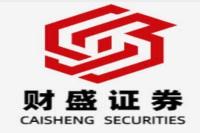A股市场午盘解读:谷子经济崛起,电池板块遇冷
元描述: A股市场午盘收盘,谷子经济、IP经济等概念股强势上涨,而电池、能源金属等板块则表现低迷。本文将深入分析市场行情,解读投资机会与风险,并提供专业建议。关键词:A股,股市,谷子经济,IP经济,电池板块,投资,市场行情分析
Wow, what a rollercoaster ride the A股 market has been today! The midday bell rang with a mixed bag of results, leaving investors scratching their heads and strategists scrambling for explanations. The headline today? A fascinating divergence – the seemingly unstoppable rise of niche sectors like the "Guzi Economy" (谷子经济), juxtaposed against the chilling slump of previously hot favorites such as the battery sector (电池板块). This isn't your grandpappy's stock market; we're seeing rapid sector rotations, volatile trading, and a level of unpredictability that keeps even seasoned pros on their toes. Understanding this market requires more than just looking at the numbers; it needs a deep dive into the underlying trends, investor sentiment, and the ever-shifting geopolitical landscape. This isn't just a market report; it's a narrative, a story unfolding before our very eyes, one that we'll unpack together. Get ready to buckle up, because this journey into the heart of the A股 market is going to be wild! We’ll examine the key drivers behind today's performance, explore the implications for investors, and, most importantly, equip you with the knowledge you need to navigate these exciting – and sometimes treacherous – waters. Let's dissect this market action, shall we?
谷子经济 (Guzi Economy) 的崛起
The "Guzi Economy," a surprisingly robust sector today, refers to the burgeoning market centered around millet and related products. This seemingly understated sector has exploded onto the scene, capturing significant investor attention and driving impressive gains for related stocks. Why the sudden surge? Several factors contribute to this phenomenon:
-
A resurgence in traditional Chinese culture: A growing interest in traditional foods and lifestyles has led to a renewed appreciation for millet, viewed as a healthy and wholesome alternative to more processed grains. This cultural shift is reflected in consumer behavior and is driving demand.
-
Health and wellness trends: Millet's nutritional profile, rich in vitamins and minerals, aligns perfectly with current health and wellness trends. Marketing efforts highlighting these benefits further fuel consumer interest.
-
Government support: While not explicitly stated, there's a subtle sense that government policies promoting agricultural diversification and sustainable farming practices indirectly benefit millet cultivation.
-
Investment speculation: Like any rapidly expanding sector, the Guzi Economy has attracted a significant amount of speculative investment, amplifying price movements. This speculative element introduces a degree of volatility that investors must consider.
The rise of the Guzi Economy showcases the market's ability to find surprising pockets of growth. However, it also highlights the importance of fundamental analysis. While the current enthusiasm is understandable, investors should remain cautious and avoid solely chasing short-term gains. Long-term viability depends on sustained consumer demand and the sector’s ability to handle increased production and distribution.
电池板块 (Battery Sector) 的低迷
In stark contrast to the Guzi Economy's jubilant performance, the battery sector experienced a significant downturn. This decline, while concerning, isn't entirely unexpected given recent market trends:
-
Oversaturation: The battery sector had experienced a period of rapid growth, leading to concerns about market oversaturation and decreased profitability for individual companies. Competition is fierce, leaving some players struggling to maintain margins.
-
Raw material price fluctuations: The price of raw materials crucial to battery production, such as lithium and cobalt, has been notoriously volatile. These fluctuations directly impact production costs and profitability, making the sector susceptible to price swings.
-
Technological advancements: Rapid technological advancements in the battery sector constantly introduce new and improved technologies, rendering older technologies obsolete. This creates challenges for companies that fail to adapt quickly enough.
-
Global geopolitical factors: Geopolitical uncertainties, particularly those related to supply chains and international trade, can significantly impact the availability and pricing of raw materials, adding another layer of complexity to the sector's outlook.
The decline in the battery sector serves as a reminder of the inherent risks in investing in rapidly evolving industries. Thorough due diligence, understanding supply chain dynamics, and a long-term perspective are paramount in navigating this sector's challenges.
市场整体表现及分析
The A股 market today presented a fragmented picture. While the Guzi and IP economies experienced significant gains, the battery sector's downturn overshadows the overall performance. This uneven performance points towards a market influenced by specific sector narratives rather than a broad-based trend. The relatively low trading volume suggests a degree of investor hesitancy, possibly reflecting uncertainty about the broader economic outlook. The news regarding potential tariffs on Chinese imports introduced a dose of geopolitical risk, further dampening investor enthusiasm.
Here’s a quick snapshot of today's key market movements:
| Index | Change (%) | Closing Price |
|-----------------|-------------|----------------|
| Shanghai Composite | +0.43 | 3277.82 |
| Shenzhen Component| +0.07 | 10427.67 |
| ChiNext | -0.16 | 2171.60 |
This data underscores the need for a diversified investment strategy. Relying on a single sector can expose investors to significant losses if that sector underperforms. Careful diversification across various sectors can mitigate risks and enhance overall portfolio resilience.
常见问题解答 (FAQ)
Here are some frequently asked questions about today's A股 market performance:
Q1: What caused the surge in the Guzi Economy?
A1: A combination of factors, including renewed interest in traditional Chinese culture, health and wellness trends, and potential government support, contributed to the significant gains in the Guzi Economy. Speculative investment also played a role.
Q2: Why did the battery sector decline?
A2: The downturn in the battery sector can be attributed to oversaturation, volatile raw material prices, rapid technological advancements, and global geopolitical uncertainties.
Q3: Is it safe to invest in the Guzi Economy?
A3: While the Guzi Economy shows promise, it's crucial to conduct thorough due diligence before investing. The sector's rapid growth has attracted speculative investment, introducing a degree of volatility. A long-term perspective and careful consideration of risks are essential.
Q4: Should I sell my battery stocks?
A4: Whether or not to sell your battery stocks depends on your individual investment strategy and risk tolerance. The sector's challenges require a careful assessment of your long-term outlook and the specific companies you hold. Consider consulting a financial advisor for personalized advice.
Q5: What is the overall outlook for the A股 market?
A5: The A股 market's outlook remains uncertain. The current volatility and sector-specific movements suggest a need for caution and a diversified investment approach. Closely monitor economic indicators and geopolitical events for insights into the market's future direction.
Q6: How can I mitigate the risks in this volatile market?
A6: Diversification across various sectors is crucial to mitigate risks in this volatile market. Thorough due diligence before investing, a long-term investment horizon, and seeking professional financial advice can help manage risk effectively.
结论
Today's A股 market performance highlights the dynamic nature of the investment landscape. The contrasting fortunes of the Guzi Economy and the battery sector underscore the importance of fundamental analysis, risk management, and a well-diversified investment strategy. While exciting opportunities exist, investors should remain vigilant and approach the market with a balanced perspective, recognizing both the potential for gains and the inherent risks involved. Stay informed, stay adaptable, and remember that long-term success often depends on navigating short-term volatility wisely. The A股 market remains a thrilling arena, but it’s crucial to play it smart!



